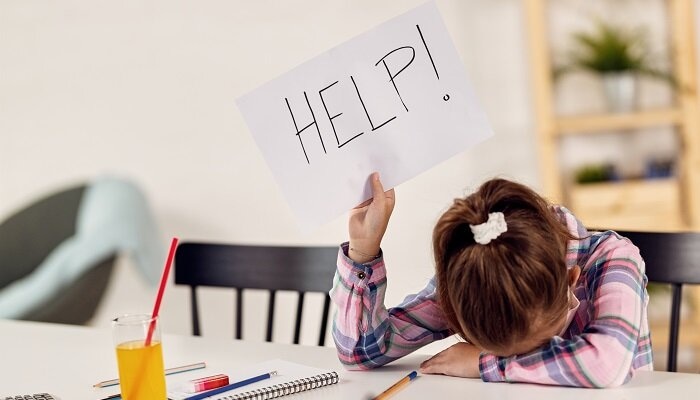Are you or a loved one struggling with depression, anxiety, and difficulty managing tasks? Have you been told it’s just a phase that will pass with time? If so, it is possible that undiagnosed Attention Deficit Hyperactivity Disorder (ADHD) may be at the root of the issue.
While ADHD is most often associated with children and adolescents due to its particularly high prevalence among this age group—it can also show up in adulthood. Many individuals don’t recognise their symptoms until they are much older or even go through life, never realising the cause of their distress.
In this article, we will discuss how undiagnosed ADHD can lead to depression and anxiety in adults – common symptoms and implications for diagnosis, ADHD treatment infos, approaches, and lifestyle management options along the way.
Overview of ADHD and how it can lead to depression and anxiety
ADHD, or Attention Deficit Hyperactivity Disorder, is a neurodevelopmental disorder that can affect anyone, regardless of age. This condition causes persistent challenges in paying attention, hyperactivity, and impulsivity. If you or someone you know struggle with these symptoms, understanding ADHD is crucial for receiving proper treatment and support.
ADHD can lead to a range of challenges that can impact the quality of life of the affected individual. However, it is not widely known that ADHD can also lead to depression and anxiety. As a result, those living with ADHD are at a higher risk of experiencing depressive symptoms and suffering from anxiety disorders.
This happens because ADHD can impact an individual’s ability to regulate emotions, plan, and concentrate, increasing the risk of developing mental illnesses. The consequences can be severe if left untreated, so it’s essential to seek medical attention and support if struggling with ADHD and its related conditions.
How to recognise the signs of undiagnosed ADHD
Attention Deficit Hyperactivity Disorder (ADHD) affects millions of people worldwide, yet a significant number of cases often go undiagnosed. Recognising the signs of undiagnosed ADHD can be challenging, as the symptoms can be subtle and often mistaken for common personality traits.
Individuals with undiagnosed ADHD may struggle with various challenges in their daily lives, including difficulty focusing, forgetfulness, impulsivity, and a lack of organisation. If you or someone you know is experiencing these symptoms, it may be time to seek professional help. A proper diagnosis and treatment plan can make a world of difference in managing symptoms and improving the overall quality of life.
Understanding the implications of an incorrect diagnosis
When it comes to healthcare, a misdiagnosis can have serious consequences. Whether it’s a wrong treatment plan or being prescribed medication for a condition you don’t have, the implications can be detrimental. Not only can it delay necessary treatment, but it can also lead to unnecessary procedures and expenses.
In some cases, it can even be life-threatening. Understanding the potential ramifications of a misdiagnosis is crucial for patients and healthcare providers alike. So it’s important to ask questions, seek second opinions, and advocate for yourself to ensure you receive the care and treatment you need.
Strategies for managing symptoms of undiagnosed ADHD
Living with undiagnosed ADHD can be a confusing and frustrating experience. However, there are strategies that can help manage the symptoms and improve the quality of life. One helpful approach is to create a routine and stick to it as much as possible.
This can include setting regular sleep and meal times, as well as scheduling time for breaks and relaxation throughout the day. Another technique is to break down larger tasks into smaller, more manageable steps.
This can prevent overwhelm and increase productivity. Additionally, exercise and physical activity can be highly beneficial for people with ADHD, as it helps release excess energy and improve focus. While these strategies may not completely alleviate all symptoms, they can provide a sense of control and improve daily functioning for individuals with undiagnosed ADHD.
How to find support when dealing with undiagnosed ADHD
Dealing with undiagnosed ADHD can be extremely challenging, but you should know that you’re not alone. Finding the right support system can make all the difference. Start by reaching out to your family and friends, who can provide a listening ear and emotional support.
You can also seek out support groups online or in your community. Talking to a therapist or counsellor can also help manage the symptoms of ADHD and find coping strategies. Remember, seeking help is a sign of strength, and it’s never too late to start caring for your mental health.
The benefits of getting a correct ADHD diagnosis
Getting a correct diagnosis for ADHD can make a huge difference in someone’s life. It’s not just about getting medication or accommodations; it’s about finally understanding why you’ve struggled for so long.
With a correct diagnosis, you can learn coping mechanisms and strategies tailored to your specific needs. You might finally find relief in knowing that you’re not just lazy or unfocused but that there’s an actual reason behind your struggles.
By seeking out a professional diagnosis, you’re taking an important step towards improving your quality of life and achieving your goals, whatever they may be. So, it is imperative to consult a professional if you have ADHD.
Conclusion
While recognising the signs of undiagnosed ADHD and taking action can be difficult, doing so can lead not only to understanding the root causes of depression and anxiety but also to successful management and treatment. A variety of strategies, such as stress-reducing techniques, lifestyle modifications and better organisation, can be beneficial for reducing symptoms.
Similarly, medical interventions may provide much-needed relief as well. Additionally, there are many resources that offer support if you’re struggling with an undiagnosed mental illness like ADHD. Getting an accurate diagnosis is essential in finding peace and managing symptoms that affect your daily life.
By being mindful of ADHD’s potential implications and getting adequate support, you will likely find yourself more prepared than ever before on the path towards self-discovery and healing.


















